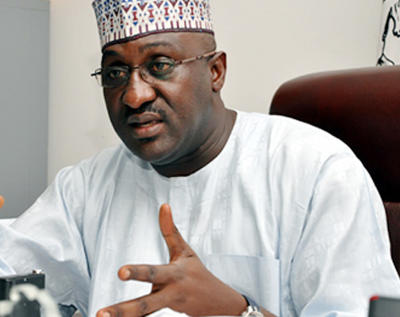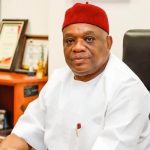By: Adole A. Adole
These words by Dr. Mike Omeri, former Director General of the National Orientation Agency (NOA), pierce through the prevailing fog of political deceit, lethargy, and inaction that have come to characterize Nigeria’s response to insecurity, especially in the North Central and Middle Belt regions. In the wake of another wave of senseless bloodletting in Plateau, Benue, and other parts of the country, this passionate outcry by a committed statesman must not be drowned in the usual tide of apathy and politicisation.
Dr. Omeri’s position is not merely a lamentation; it is a call to national conscience, an urgent reminder that the time for evasive rhetoric and convenient blame games is over. Nigeria is hemorrhaging—its children slaughtered in their sleep, its women widowed and communities erased overnight. What is at stake is not just territory, but the very soul of the nation.
It is true that governors in the frontline states have made spirited efforts to contain this monstrous wave, but insecurity of this magnitude is not a burden the sub-national governments can carry alone. It is overwhelming, distracting, and grossly resource-draining. The federal government must rise to the occasion—not with slogans or commiseration—but with decisive action and courageous leadership. The situation demands it. Nigeria demands it.
To treat security as a partisan chessboard is to sign the death certificate of our collective future. Dr. Omeri was right in calling out political leaders who cynically manipulate insecurity for personal or political gain. Such behavior is not only disgraceful, it is dangerously criminal. Security management must rise above politics. It is a matter of life and death, of survival and annihilation.
To be clear, the Nigerian military, police, and paramilitary forces have displayed commendable gallantry and professionalism within the limits of their resources and capacities. But this war cannot be won by sheer gallantry. It must be matched with massive investments in equipment, technology, intelligence, and welfare. Our security apparatus must be unshackled from bureaucracy and empowered with flexibility, innovation, and rapid response capabilities.
More fundamentally, internal intelligence gathering must be strengthened, localized, and immediately actionable. The federal government must not only invest in intelligence gathering—it must use it promptly. Timely intelligence, if acted upon, can prevent attacks, save lives, and restore confidence in government. We need a proactive, not reactive, security doctrine.
Also crucial is community enlightenment. National security is not the job of uniformed men alone—it is the sacred duty of every Nigerian. Communities must be mobilized, educated, and equipped with the basic tools of vigilance. The security and intelligence apparatchik must initiate robust civil engagement strategies to educate the citizenry on their roles in identifying suspicious behaviors, reporting anomalies, and protecting themselves without descending into jungle justice or ethnic profiling.
In this regard, it is imperative that communities are taught, just as in all civilized societies, to live in peace with their neighbors—regardless of tribe, religion, language, or class. Coexistence is not optional. Tolerance is not a weakness—it is the bedrock of stability in plural societies. The common denominator must be our collective interest in securing lives and property while everyone lawfully pursues their aspirations.
Governor Caleb Mutfwang deserves commendation for maintaining the urgency of the Plateau tragedy as a national discourse and for his proactive steps in engaging with the people. But like Omeri rightly pointed out, there must be a national consensus that we are fighting for the soul of Nigeria. The truth must be told to President Tinubu without equivocation. The hour is late, and the consequences of failure are catastrophic.
If states like Plateau are allowed to slip further into lawlessness and anarchy, the ripple effect on the nation will be devastating. Ungoverned spaces are breeding grounds for terrorism, banditry, and ethnic militias. The domino effect of such collapse will not stop at state borders—it will consume regions and destabilize the federation.
Hence, Omeri’s suggestion for regional and community-based security frameworks is not just logical—it is inevitable. The federal government must devolve parts of the security infrastructure in practical terms. Regional cooperation, community policing, and local intelligence must be integrated into the national security architecture in a formal, legal, and coordinated manner.
This is not about competing structures—it is about synchronized partnerships. There is no competition in fighting insecurity. There is only cooperation, or there is failure.
The federal government must therefore take the following urgent actions:
1. Create a National Framework for Multi-Level Security Partnership, involving federal, state, local, and community actors.
2. Strengthen Intelligence Agencies by decentralizing collection and analysis, ensuring actionable intelligence reaches the right hands in real time.
3. Invest in Community Enlightenment Campaigns, led by the NOA and DSS, to build a culture of vigilance and non-violent civic defense.
4. Formalize Regional Security Initiatives under federal oversight to ensure legality and coordination, while empowering local responsiveness.
5. Declare Zero Tolerance for Political Weaponization of Insecurity, with sanctions against those who seek to benefit from national tragedies.
6. Launch a National Tolerance and Peace Campaign, to counter ethnic and religious incitement and promote cross-cultural understanding.
7. Provide Sustainable Support to Victims and Survivors of attacks, ensuring that rehabilitation, not abandonment, becomes the national policy.
Dr. Omeri has done his part as a patriot. He has spoken the truth. Now, it is up to the rest of us—citizens, civil society, journalists, opinion leaders, and political officeholders—to amplify his message and insist that it leads to action. The presidency must listen, not as a favor, but as a duty owed to the nation.
Security is not a slogan. It is not a campaign promise. It is the oxygen of civilization. Nigeria is suffocating, and the antidote is not denial or delay—it is action, now.
We cannot afford to lose Plateau, Benue, Niger, or any other part of this country. We must resist the tide of terror with unity, courage, and truth. There is no competition in fighting insecurity. Only partnerships. That is the way forward.
ADOLE






